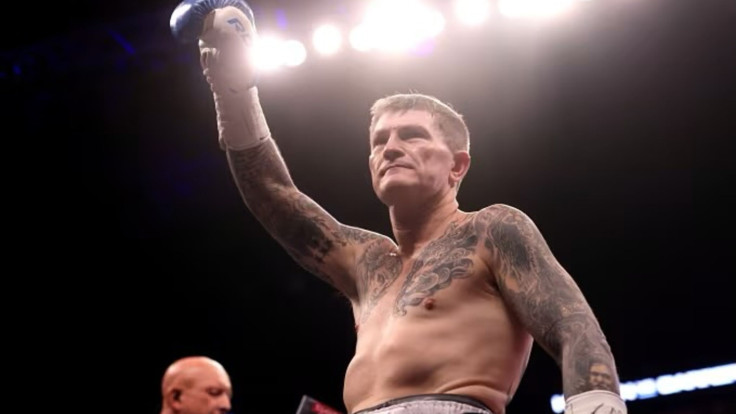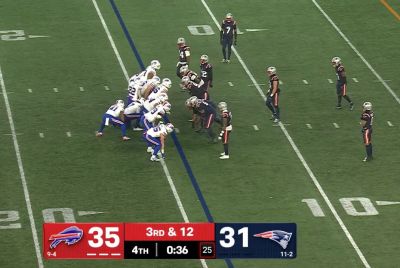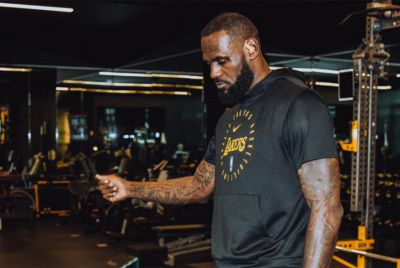Remembering The Hitman: How Ricky Hatton Became a Boxing Hero Despite His Demons
Ricky 'The Hitman' Hatton has passed away at 46. Take a look back at his life, legacy, and the personal demons he bravely fought.
The news of Ricky Hatton's death at 46 came as a shock to boxing fans worldwide.
Police found his body at his home in Hyde, Greater Manchester, and set up cordon around the property. It was later announced that his death was not being treated as suspicious.
Known as 'The Hitman' and 'The People's Champion,' Hatton was more than just a boxer; he was a working-class hero who embodied the grit and resilience of his hometown, Manchester.
His story was one of spectacular highs and devastating lows, of a man who fought not only for titles but also against the personal demons that haunted him long after he hung up his gloves.
The Battle Inside the Ring
Ricky Hatton's rise to stardom was fuelled by an aggressive, relentless fighting style that endeared him to millions. He turned professional in 1997 and quickly built a formidable record, according to the BBC.
But it was his IBF light-welterweight title fight against the legendary Kostya Tszyu in 2005 that cemented his legacy.
In a sweltering Manchester arena, Hatton gave the performance of a lifetime, overwhelming Tszyu with relentless pace and powerful body shots that forced a stoppage.
The victory was a coronation, with the image of a jubilant Hatton hoisted high above the crowd becoming an iconic symbol of British boxing.
His success led to global recognition and high-profile fights in Las Vegas, where his legion of loyal, beer-drinking fans, the 'Hatton Army,' would descend on the Strip, turning the Nevada desert into a sea of blue and white.
These were not just fights, according to The Guardian, but cultural events that were also deeply personal for Hatton.
Winning Hearts and Minds
But with the dizzying heights came crushing defeats. In 2007, he faced the unbeaten Floyd Mayweather Jr., and in 2009, the pound-for-pound king Manny Pacquiao.
Both fights ended in brutal knockouts, but they did little to diminish his stature in the eyes of fans in Britain and around the world.
Supporters continued to back their plucky hero, admiring him for his courage, his willingness to face the best, and his unvarnished, down-to-earth persona that never changed despite his fame.
The Battle Outside the Ring
The true measure of Ricky Hatton's heroism, however, was not inside the ring but in the battles he fought with himself. After his last professional fight in 2012, Hatton fell into a deep depression.
He was candid about his struggles with alcoholism, drug use, and suicide attempts. He spoke openly about how the adrenaline of fight nights was replaced by crushing emptiness, and how his much-publicised weight issues, which saw him balloon between bouts, were symptoms of a deeper mental health crisis.
In a sport where vulnerability is often seen as weakness, Hatton's transparency was a game-changer. He became a prominent advocate for mental health, using his platform to encourage others to seek help, according to his local NHS.
Winning Beyond the Ring
His openness earned him a new level of respect and solidified his reputation as 'The People's Champion' in the truest sense, according to the BBC. He was no longer just a fighter but a survivor, a man who showed the importance of seeking support.
In his later years, Hatton had seemingly found peace. He worked as a trainer and promoter, mentoring a new generation of fighters, including his son Campbell, as reported by the Daily Express.
He was active, happy, and had even announced a surprise comeback fight, a testament to his enduring love for boxing. The news of his passing, just weeks before his planned return, makes his loss feel even more tragic.
A Legacy of Heart and Honesty
Ricky Hatton's legacy will be defined not only by the belts he won but by the hearts he captured. He was a force of nature in the ring and a beacon of hope outside of it.
He was a man who stumbled but always got back up, who had the courage to face his demons and inspired others to do the same.
His story is a poignant reminder that even the strongest can be fighting their own silent battles, and that sometimes, the biggest victory is simply living to fight another day.
© Copyright IBTimes 2025. All rights reserved.























